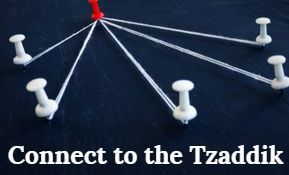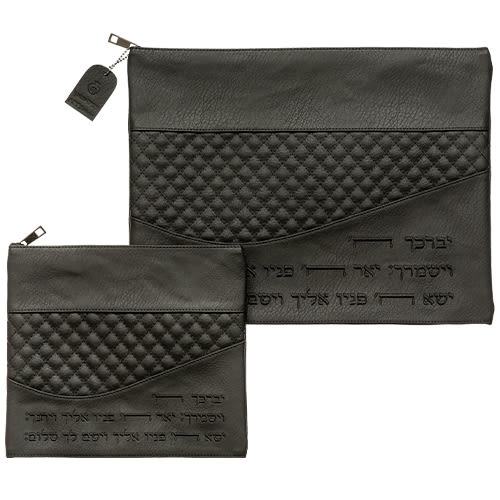
Tazria: A Humble Servant of G-d
It’s impossible to merit knowledge of the Torah and good deeds and teshuva unless one breaks his arrogance and coarseness.

“Hashem spoke to Moshe, saying: “Speak to the Children of Israel, saying: When a woman conceives and gives birth to a male, she shall be contaminated for a seven-day period, as during the days of her separation infirmity shall she be contaminated.” (Chapter 12, Verses 1-2)
The end of last week’s parsha discusses the laws of impurity from dead animals. The Torah now turns to impurity that emanates from human beings – it begins with a woman who gives birth (Artscroll commentary there). Rashi quotes a Midrash which says, ‘Rebbe Simlai said that just as the creation of man was after Hashem created the birds and animals, so too the laws of humans are explained after animal life.’
Rebbe Noson explains that the creation of man came after the creation of animals so that man would learn to subdue his coarseness and arrogance and truly merit to learn Torah and serve Hashem. It’s impossible to merit knowledge of the Torah and good deeds and teshuva, each person according to their level, unless somebody is able to break their arrogance and coarseness. It was for this reason that man was created last. The Sages said that man was created last in order to enter the festive meal of Shabbos immediately; alternatively, if he will become arrogant, people will remind him, ‘a mosquito was created before you during the act of creation.’
This means that man was created only to learn Torah and serve Hashem all of the days of his life, therefore the Shabbos meal is already prepared for him, everything that he needs for his livelihood and peace of mind was already created before him. On the other hand, the Sages said that a person can’t merit the holy meal of Shabbos, which represents the Torah and the service of Hashem, unless they have humility. Only through humility can a person merit to truly serve Hashem and come closer to Him. However, when a person becomes arrogant, then people say ‘a mosquito came before you’ because animals rule over him. He is lower than an animal because of his arrogant behavior.
Rebbe Noson says that the same is true today, man is blessed by Hashem with possessions and a livelihood in order to fulfill his true purpose in the world, but this blessing depends upon him striving to be truly humble. We find that the main reason for creating man after all of the animals was for humility, which is the attribute needed to properly receive and connect to the Torah. This is also the reason, says Rebbe Noson, that after this chapter in the Torah about a woman giving birth, the Torah brings the laws of skin blemishes, which come as a result of haughtiness. (Likutei Halachot, Laws of Orlah, 5th teaching)
What does it mean to be humble? How can we merit the attribute of humility?
In a teaching that I learned this week, Rebbe Nachman of Breslev says that regarding the attribute of humility people make a lot of mistakes. I think this means that they think they have already attained the attribute of humility or they are mistaken about what it means to be humble.
He says that we need a lot of spiritual knowledge in order to know how to be truly humble, and really, only Moshe, because of his incredible knowledge of Hashem could be truly humble. The more that we are able to obtain knowledge of Hashem, knowledge of the Torah, the more we are able to recognize Hashem’s greatness and realize our own humility. (Likutei Moharan, 22nd teaching, Part 2) Rebbe Nachman also says in his book, Sefer HaMiddos (in English, The Aleph Beit) in the chapter about character traits, that through faith a person comes to humility. (Humility, 3rd teaching)
In his teaching above, Rebbe Noson says that only through humility can a person merit to learn Torah and come closer to Hashem. Rebbe Nachman is teaching us here that trying to know Hashem and His Torah also brings us to humility. Humility is being able to accept that I don’t know and it’s okay not to know something. It’s being real with where we are holding in life and wanting to grow from there. It’s also recognizing our attributes and strengths, but knowing that they are gifts from God, who blessed us with these gifts in order for us to help others and do good in the world.
I have felt a lot recently like I’m just not myself, I’m so far from who I truly am or I have just forgotten who I really am. I thought recently about the story of the sophisticate and the simpleton from Rabbi Nachman’s Stories (see Rabbi Arush’s explanations in Garden of Wisdom). The simpleton is humble, simple, and he has a pure heart. He is not concerned with what other people think of him or how much money they are making etc., he’s not stuck in comparisons, he’s happy with his portion in life. Through his simplicity and faith, he ultimately merits to achieve greatness and become an important minister in the kingdom. I thought about this teaching this past Shabbat, and thought to myself and then prayed, I want to be like the simpleton, I want to be happy and humble. I want to be kind-hearted to others. I want to live with simple faith. I want to live in the moment. The beginning of this parsha teaches us that man was created last in order to overcome his arrogance and become a truly humble servant of Hashem.
Chodesh Tov! Good Shabbos!
***
Republished with permission from breslov.blog.











Tell us what you think!
Thank you for your comment!
It will be published after approval by the Editor.